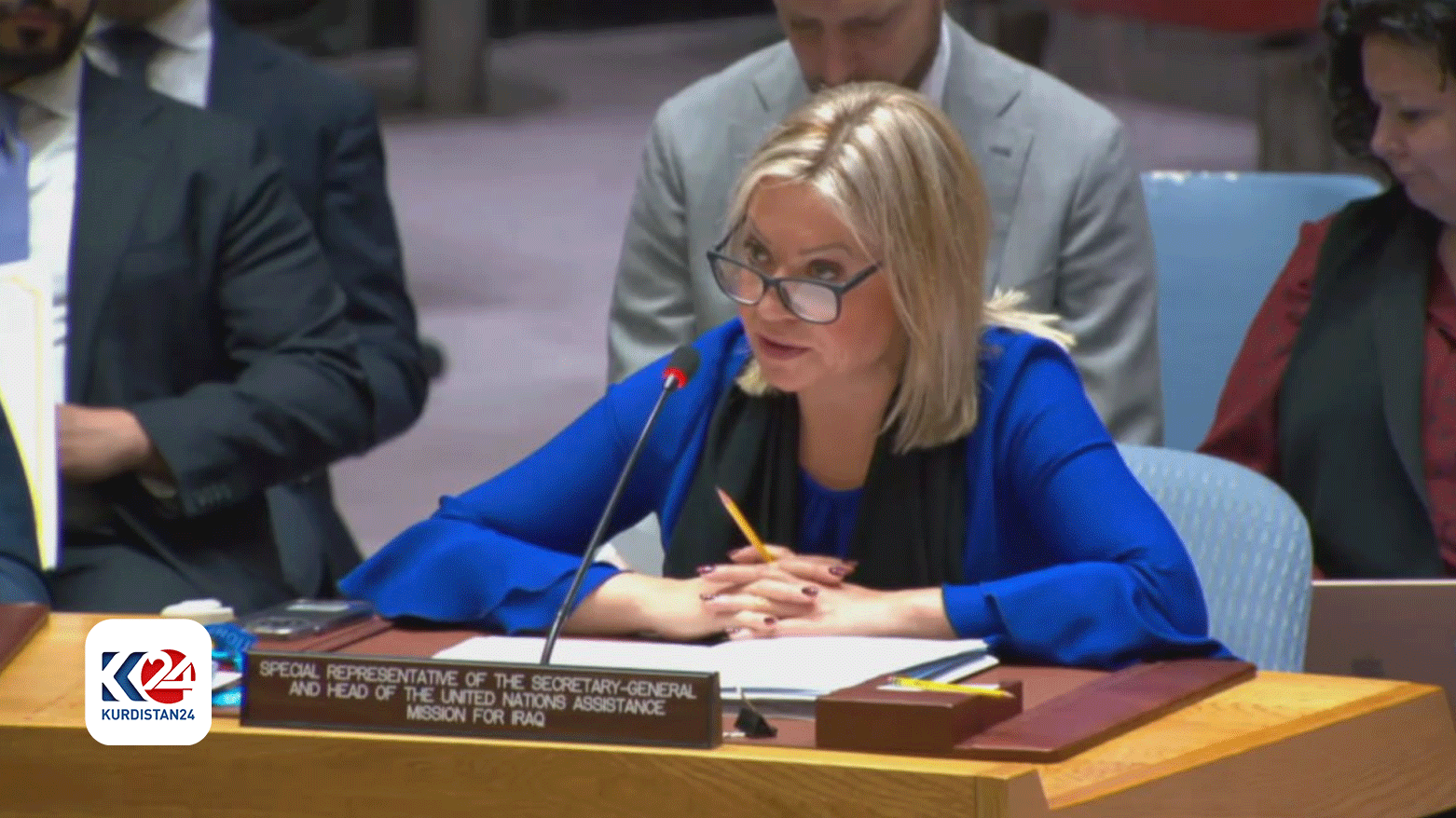Kurdistan Region must receive funding to pay its civil servants: UN Envoy
Jeanine Hennis-Plasschaert underlined that the Kurdistan Region must receive funding to pay its civil servants their monthly salaries.

ERBIL (Kurdistan 24) – The Special Representative of the United Nations Secretary-General for Iraq, Jeanine Hennis-Plasschaert, during a special meeting on Iraq in the United Nations Security Council (UNSC) underlined that the Kurdistan Region must receive funding to pay its civil servants their monthly salaries.
“Wrangling between Baghdad and Erbil on financial and budgetary issues goes on. While acknowledging that there are various difficult and technical issues at play, this does not change the fact that, in the absence of a sustainable agreement, it is the everyday people who suffer," she said.
Nevertheless, she welcomed the recent decision of the federal Government to approve the financing of the Region for the month of January, in accordance with the federal budget for the year 2024.
“But we can only reiterate that a more permanent solution is desperately needed. In simple terms: if stability is to be preserved, the Kurdistan Region must receive funding to pay its civil servants their monthly salaries.”
Moreover, she said she regrets reporting that the (Kurdistan) Region’s parliamentary elections have again been delayed. The UN has continuously advocated for the elections to be held on time.
“Initially scheduled for October ‘22, they were postponed to November ‘23 then further delayed to February of this year. And we are now awaiting a new date.”
“Let me be clear: these continued postponements do not help already low trust levels, nor do they contribute to Iraq’s stability,” she added.
She also welcomed the decision by Iraq’s Council of Ministers has set 30 July 2024 as the date for the closure of all displacement camps throughout the country, including the Kurdistan Region.
However, she added that this decision should be complemented by solutions for displaced people outside camps. “Equally important is ensuring all returns and relocations are informed, safe, voluntary, dignified and inclusive, and pursued in cooperation and coordination with the Kurdistan Regional Government.”
The Kurdistan Region hosts the majority of IDPs and refugees in Iraq, and Kurdish officials have previously underlined that any return of displaced persons should be voluntary.
Read More: U.S. Consul General praises KRG’s open door policy for IDPs and refugees
On Jan. 28, the U.S. Consul General Mark Stroh during a visit to Sheikhan, strongly welcomed and supported this policy of the Kurdistan Regional Government (KRG).
She also mentioned that all efforts should centre on safeguarding Iraq from being drawn in any way into a wider conflict.
"And it is precisely within this context that many expressed shock over Iran’s missile attack on Erbil a few weeks ago, which killed civilians - including a little girl," she said.
Iran’s missile attack on Erbil on Jan. 15, killed six civilians, including one 11-month-old Dutch baby, and injured several others.
"Based on accusations the Iraqi Government has strongly refuted, these actions were sorely at odds with the great efforts made on the Iraq-Iran security agreement, which I highlighted in my October briefing."